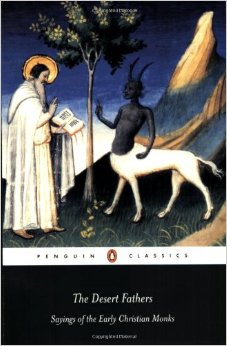 Proverbs 16:32
Proverbs 16:32
He who is slow to anger is better than the mighty,
and he who rules his spirit than he who captures a city. (NASB)
Like a city that is broken into and without walls,
is a man who has no control over his spirit (Proverbs 25:28; NASB).
In these two proverbs a contrast is made between the one who rules their spirit and the one who does not. In both cases the image used is that of a city surrounded by its walls, a primary and enduring means of defence in the ancient world. Strong walls may not guarantee victory, but lack of walls or broken walls may well guarantee defeat. A city without walls was vulnerable to every passer-by. One need only remember the downfall of Jericho (Joshua 6) or Nehemiah’s tears to understand the importance of sound walls in good repair. As long as Jerusalem’s wall was broken down, the inhabitants there were in “great distress and reproach” (Nehemiah 1:3-4).
The message of wisdom, of course, is that one must “rule their spirit,” and yet this is easier said than done. Indeed, the first text suggests that it is more difficult to rule one’s spirit than to capture a city. It may be possible that a person of unrestrained anger might prove a ferocious warrior, perhaps even a resolute commander who can conquer cities. Yet better is one who rules his or her spirit.
English translations of 16:32 differ, many rendering “rule one’s spirit” in terms of anger, and so making the second part of the verse more explicitly parallel with the first part. So the NRSV translates: “One who is slow to anger is better than the mighty, and one whose temper is controlled than one who captures a city.” The Holman Christian Standard Bible captures the sense in a memorable manner for English readers: “Patience is better than power, and controlling one’s temper, than capturing a city.” Nevertheless, Roland Murphy’s suggestion that the word for spirit refers to a person’s appetites and passions perhaps allows us to extend the meaning of these texts beyond a narrow application to anger alone (Murphy, Proverbs (WBC), 194). Many passions and appetites vie for expression in the human heart, and not all of them good. Anger may be a prominent and suitable example, but others include pride, envy, greed, lust, sloth and gluttony—all of the classic deadly sins. Other emotions such as fear, guilt and shame might also be included. The wise person, it seems, will rule them all.
Taking our lead from the biblical example of anger we gain some hints into how this might be achieved. The text speaks of being “slow to anger.” Sometimes anger smoulders, sometimes it explodes, and sometimes it roars into flame after smouldering away for a long period. Being slow to anger suggests that one stops and “counts to ten” in the face of provocation, and that one keeps one’s regular temperature cool rather than heated, so that small things do not cause us to “boil over.” In other words, we practise restraint, keeping a sharp rein on our temper, considering other perspectives, possibilities and options. A wise person will maintain a “cool spirit,” seeking to subject the affections to reason (cf. Proverbs 17:27).
Another strategy for ruling one’s spirit is to practise the virtue that stands in opposition to the vice. Proverbs 19:11 is an example: “A man’s discretion makes him slow to anger, and it is his glory to overlook a transgression.” To practise forgiveness is a glory whereas to flame into anger is foolish (cf. Proverbs 14:29). A third strategy is to recall the promise given to us by God and live toward that hope. In light of what is at stake, Jesus advocated a ruthless exercise of self-control in the face of sexual temptations and lust: “If your right hand offends you, cut it off and throw it from you; for it is better for you to lose one of the parts of your body, than for your whole body to go into hell” (Matthew 5:30).
Of course the problem is that I have only two hands and two eyes… And so in the end, we must pray. Self-control is, after all, a fruit of the Spirit’s work and activity in our lives (Galatians 5:22-23). So, too, Jesus counselled his disciples saying, “Watch and pray, lest you enter into temptation” (Matthew 26:41). I am reminded of one of the sayings of the desert fathers:
They said of Sarah that for thirteen years she was fiercely attacked by the demon of lust. She never prayed that the battle should leave her, but she used to say only, “Lord, give me strength” (Ward, The Desert Fathers: Sayings of the Early Christian Monks, 36).
